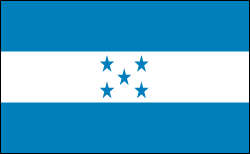Honduras History


Tensions Flare Between Honduras and Nicaragua
After a decade of military rule, parliamentary democracy returned with the election of Roberto Suazo Córdova as president in 1982. However, Honduras faced severe economic problems and tensions along its border with Nicaragua. “Contra” rebels, waging a guerrilla war against the Sandinista regime in Nicaragua, used Honduras as a training and staging area. The U.S. also used Honduras for military exercises, and it built bases to train Honduran and Salvadoran troops.
In 1997, Carlos Flores Facussé of the Liberal Party was elected president. He began to reform the economy and modernize the government. In recent years, Honduras has faced high unemployment, inflation, and economic overdependence on coffee and bananas. In Oct. 1998, Hurricane Mitch killed some 13,000 Hondurans, left 2 million homeless, and caused more than $5 billion in damage.
In 2002, Ricardo Maduro became president, promising to lessen crime and corruption, but his hard-line efforts, growing increasingly more repressive, did not improve these problems. In 2006, a new president, Manuel Zelaya, also vowed to fight corruption and gang violence, but he promised to do so with a more humane approach. A free-trade agreement (CAFTA) with the U.S went into effect in April 2006.







